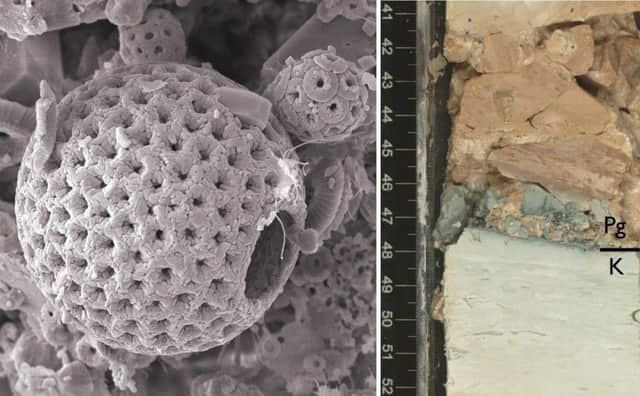Dinosaurs were killed off by asteroid not volcanic blasts


Instead, they believe these massive eruptions may have helped shaped life on Earth after a mass extinction event wiped out 75 per cent of the planet’s species around 66 million years ago.
The new research, in which experts from the University College London and University of Southampton were involved, attempts to address the ongoing debate as to whether the Cretaceous-Paleogene (K-Pg) extinction was caused by a series of volcanic eruptions, or an asteroid collision, or both.
Advertisement
Hide AdAdvertisement
Hide AdGeological records indicate that the environmental impacts from the massive volcanic eruptions in India, which caused a huge rock formation known as the Deccan Traps, happened 200,000 years before the K-Pg event.
According to the scientists, this indicates volcanic activity did not directly contribute to the death of dinosaurs. Instead, they are standing by the original argument that the K-Pg event was caused by a 10km-long asteroid that crashed on the Yucatan Peninsula in Mexico, which resulted in the 200km-wide Chicxulub impact crater.
Professor Paul Bown, of the UCL Earth Sciences and study co-author, said: “Most scientists acknowledge that the last, and best-known, mass extinction event occurred after a large asteroid slammed into Earth 66 million years ago, but some researchers suggested volcanic activity might have played a big role too and we’ve shown that is not the case.”
The researchers examined tiny marine fossils to find out more about the ocean temperatures and carbon cycle changes at the time of the extinction.
These microscopic fossils, extracted from a seabed near Newfoundland in Canada, carry the geological record of the moment when dinosaurs went extinct, known as the K-Pg boundary.
The team then developed climate models showing the effects of carbon dioxide release from the volcanic eruptions.
Results showed volcanic gas emissions occurred 200,000 years before the K-Pg event.